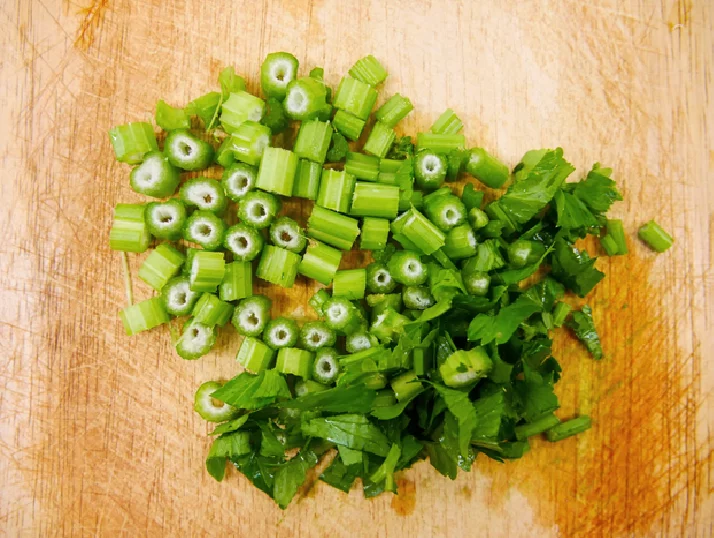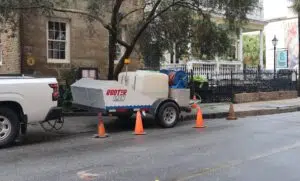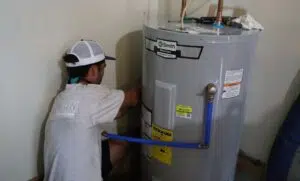Imagine this: You’re hosting a small get-together with close friends and family. The laughs are flowing, the mood is vibrant, and everyone is raving about your culinary skills. Then suddenly, the sink starts to gurgle ominously, and water refuses to go down the drain.
Panic sets in. You’ve got a clogged drain and a house full of guests! If only you had searched for a “clogged drain company near me” before this could happen.
Don’t let this be you; what you don’t know about your favorite foods and their impact on your drain can truly mess up your plans, and your plumbing.
You Are What You Drain
The Oily Offenders: Fats, Oils, and Grease
A Lesson in Chemistry: Oil and Water Don’t Mix
Firstly, remember your basic science lessons? Oil and water don’t mix. So, when you pour cooking oils, such as olive or vegetable oils, down the drain, they won’t dissolve in water. Instead, they float and accumulate, starting to line your pipes like the worst kind of interior decorating.
The Big Freeze
While hot oils may seem liquid and free-flowing, don’t forget that they solidify as they cool. Now, imagine that happening in your pipes. Over time, this solidified gunk forms layers that trap other food particles. It’s like the traffic jam of the plumbing world, and the only thing moving is your stress levels!
The Debris Magnet
Here’s the kicker: not only do fats and oils stick to the pipes, but they also act as magnets for other food debris. Stuff like pasta bits or vegetable peels cling to the oily layers, and before you know it, you’ve got a full-blown blockade in your plumbing system.
The Hidden Hazards: Coffee Grounds and Eggshells
Organic ≠ Safe
The word ‘organic’ often lulls us into a false sense of security. Organic veggies? Good for you. Organic waste down the drain? Not so much. Coffee grounds and eggshells, while organic, are culprits when it comes to clogged drains.
The Silt Situation
Ever noticed how coffee grounds tend to settle at the bottom of your coffee cup? They do the same in your drain, creating a layer of sediment almost like a silt bed at the bottom of a river. Except this river doesn’t flow smoothly; it backs up and makes you regret that last cup of Joe.
Snowballing into a Crisis
Sure, a small heap of coffee grounds or eggshell fragments might not seem like much initially. But these particles accumulate over time. Combined with other food wastes and oily residues, they create the perfect storm for a plumbing nightmare that might have you hastily searching for a “clogged drain company near me.”
Fibrous Foods: The Thread of Nightmares
The String Theory of Clogging
Celery, asparagus, and corn husks have fibrous, stringy textures. When these go down the disposal, they don’t break down easily. The stringy fibers can wrap around your garbage disposal blades, hindering their effectiveness.
The Domino Effect
Once these fibers have entangled your disposal blades, the appliance can’t effectively grind other types of food waste. The result? Your disposal system starts to lose its efficacy, and clogs become more frequent and more severe.
Potato Peels: A Sticky Situation
The Starchy Snare
Ah, the comforting allure of mashed potatoes. But be warned: potato peels are not your drain’s friend. These skins contain starch that, when mixed with water, turns into a gooey mess—sort of like makeshift glue for your pipes.
The Google Search You Didn’t Want to Make
The more you send these starchy offenders down your drain, the closer you get to the inevitable: searching for a “clogged drain company near me” while contemplating the life choices that led you here.
Starchy and Expanding Foods: The Sneaky Culprits
The Inflation Problem
Pasta and rice may seem harmless; after all, they’re delicious comfort foods. But they absorb water and expand. And this isn’t just in your cooking pot; it’s also in your pipes. Imagine a growing mass of pasta or rice in your plumbing; it’s like a sponge that soaks up water and blocks the way for anything else.
The Chain Reaction
When these foods expand, they also form a sticky surface that can catch other bits of debris, exacerbating the clogging issue. It’s like creating a dam in your pipes, a dam made of your favorite comfort foods.
The DIY Trap
Chemical Drain Cleaners: Not a Magic Elixir
While it’s tempting to pour a bottle of chemical drain cleaner to wash your worries away, this is often a temporary fix. Not only do they not eliminate the entire clog, but they can also damage your pipes, leading to more expensive repairs in the long run.
The Plunger Predicament
Sure, your trusty plunger has saved the day more than once. But for deep-seated clogs, it’s merely a band-aid solution. You’ll find yourself exerting a lot of effort, but the stubborn clog will likely remain, staring back at you as if challenging you to a duel—a duel you’re likely to lose.
By now, you probably get the picture: what goes down the drain often doesn’t go away; it just hides out of sight, plotting its grand and messy return. Keep that in mind the next time you’re tempted to dispose of these foods down your sink. Otherwise, you’ll find yourself searching for a “clogged drain company near me” sooner rather than later.
Conclusion: When All Else Fails
Your drain has seen better days, and now it’s practically begging for professional intervention. At this point, you’re probably realizing the value of having a reliable plumbing company that you can call upon. Rooter-Man SC is your trusted licensed plumber in Charleston, SC.
We offer round-the-clock, full-service plumbing repair, maintenance, and installation. Before your drain issues escalate into a full-blown catastrophe, why not request an estimate? Trust us; your pipes will thank you.







